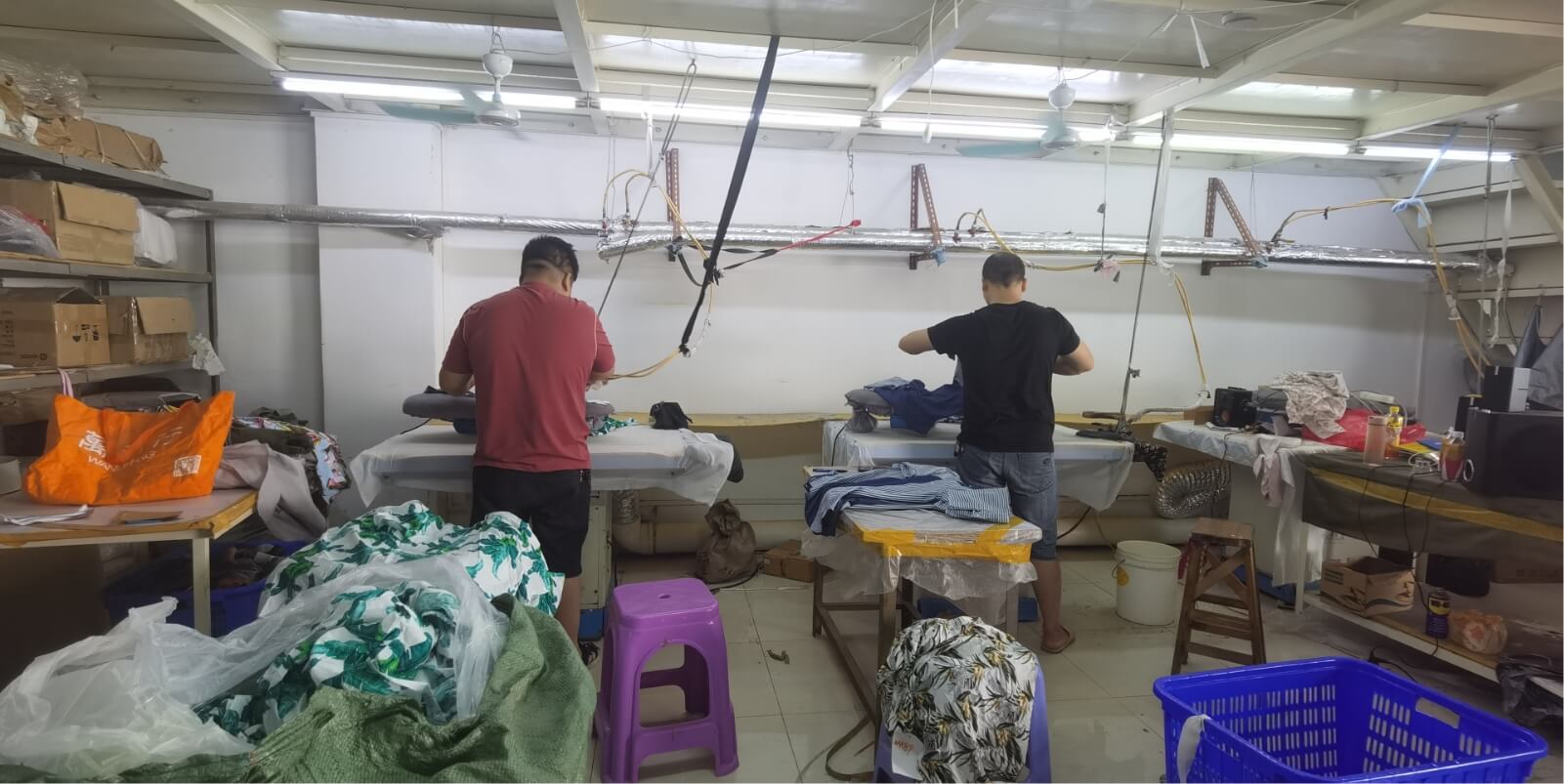
ZALORA recognises the responsibility that we share with our own-brand suppliers to source products in an ethical and transparent manner and we want our employees and customers to be confident that the people who make our products are treated fairly, enjoy decent human rights and are not exposed to unsafe working conditions. We are committed to ensure our practices and responsibilities are aligned with the United Nations Universal Declaration of Human Rights (UDHR) and the United Nation Guiding Principles on Business and Human Rights (UNGP-BHR), and we work with brands who share our commitment and verify the existence of those.
Our 2030 Fair & Ethical Sourcing targets demonstrate our commitment to be fair to the people making our own-brand products and collaborate with our brand partners to drive continuous improvement on social impacts in their own supply chains:
100%
Third Party brands meeting ZALORA’s human rights standards for brands
100%
Tier 1 own-brand factories assessed against living wages benchmarks where they exist
100%
Own-brand purchase orders placed in line with responsible purchasing practices
100%
Workers in own-brand Tier 1 factories can access an independent grievance mechanism or an effective in-factory worker dialogue mechanism
Our 2024 Performance
100%
Tier 1 own-brand factory list published on ZALORA’s website
100%
Tier 1 own-brand factories engaged in ethical sourcing training programs
100%
Workers in own-brand Tier 1 factories can access an independent grievance mechanism or an effective in-factory worker dialogue mechanism
100%
Tier 1 factories audited by an independent third party audit firm
OUR ETHICAL TRADE FRAMEWORK
ZALORA has 12 own-brands on apparel products (ZALORA Basics, ZALORA Work, ZALORA Occasion, ZALORA Active, Origin by ZALORA, ZALORA Studios, Zalia, Zalia Basics, Earth by Zalia Basics, Lubna, Lubna Homme and Lubna Kids) . As we do not own any manufacturing facilities, these products are designed in house and manufactured by a relatively small supply chain, of which we have established visibility. In 2023, we had 7 Tier 1 factories in both China and Indonesia, which employed 399 people, 68% of which were female and 32% were male. To emphasize our commitment to transparency, since 2020 we have published our own-brand Tier 1 factory list and will update it on a quarterly basis to consistently provide our stakeholders and customers with an up-to-date view of our supply chain. In addition, this list is also available at the Open Apparel Registry, an open source map and database of global apparel facilities.
All our suppliers including own-brands and third party providers of goods and services are required to conform to our Supplier Code of Conduct which sets out our social and environmental performance expectations covering employment practices, working conditions, environmental protection and governance. They must also adhere to our Animal Welfare Policy which outlines our expectations as to how and where animal materials are used in our products, and is applicable to both our own brands and our third party brand partners.
FIND OUR SUPPLIER CODE OF CONDUCT FIND OUR ANIMAL WELFARE POLICY

To ensure adherence to our Supplier Code of Conduct, all Tier 1 factories producing our own-brand assortment are required to undergo a comprehensive social audit conducted by an independent third party audit firm.
These audits involve independent and confidential worker interviews and cover elements of our Supplier Code of Conduct including labour rights, wages, working hours and health & safety. Each audit is rated within ZALORA’s in-house audit classification system which grades each non-compliance between minor and highly critical depending on its severity. Factories with unresolved critical or highly critical issues cannot be onboarded. Where an existing factory is re-audited (every 2 years) and a critical issue has arisen, there is a limited remediation period, the length of which is determined by the root cause of the issue. During the limited remediation period trade continues with the factory but if the issue is not resolved within the given period, production ceases and orders cannot be placed until the remediation is completed.
The purpose of our ethical trade framework is to achieve long term improvements in our supply chain and to build long term partnerships with our factories. Most of the factories that we are working with today have helped develop ZALORA’s own-brand labels over the years, and we believe that we have a responsibility to influence and support them in continuously improving their social standards. We actively support remediation efforts by providing on the ground assistance and tailored remediation action plans rather than distancing ourselves from them. We believe that this is the best way to make a real positive difference in the lives of the workers manufacturing our products, and this has resulted in a clear improvement of our factory base over the year.
CAPACITY BUILDING OF OUR SUPPLIERS AND BUYERS
ZALORA develops steady relationships with our suppliers and goes beyond audits to accelerate our supply chain efforts in fair and ethical sourcing. We continue to actively build awareness and capabilities in both our suppliers and buyers on our social and environmental requirements and how to effectively operationalise those requirements into our supply chain.
BRAND COLLABORATION ON SUSTAINABILITY

Although we have much greater ability to influence our own-brand supply chain, we recognise that we have a responsibility - and an opportunity - to influence the third party brands we work with to manage and mitigate their social and environmental impacts. Upholding the minimum requirements set out in our Supplier Code of Conduct is a prerequisite for all our third party brand partners.
Providing greater transparency to customers about sustainability attributes of products and the feedback from our customers on how important sustainability is to them, have been key while engaging with our brands.This work lays the foundation for our commitment that all our third party brands will meet ZALORA’s human rights standards by 2030.
MANAGEMENT OF OUR LABOUR SERVICE PROVIDERS
ZALORA engages people via labour service providers to supplement our directly employed workforce for picking and packing of customer orders, cleaning, security, maintenance and last mile delivery. The respect of fundamental human rights for people working in our operations but not directly employed by us is of no less importance than our own employees or those in our supply chain. We comprehensively map our providers and asses their risk, taking into consideration several risk factors which include national legislative environment on employment and company labor practices.
Under the framework’s guidance, and in close collaboration with our labor service providers, ZALORA has facilitated the progressive remediation of non-compliances, particularly addressing outstanding migrant employee issues identified within providers in audits over the last three years. Nearly 50% of the labor service providers have attained approval status following the ZALORA labor service providers due diligence review. In 2024, ZALORA will continue actively supporting our labor service providers to improve non-compliance and achieve decent working conditions for workers. We will steadily progress towards our 2030 targets to ensure that 100% of labor service providers are approved in accordance with the employment and recruitment guidelines outlined in the ZALORA framework.
Have a question about our sustainability strategy,
or simply wish to contact us?


